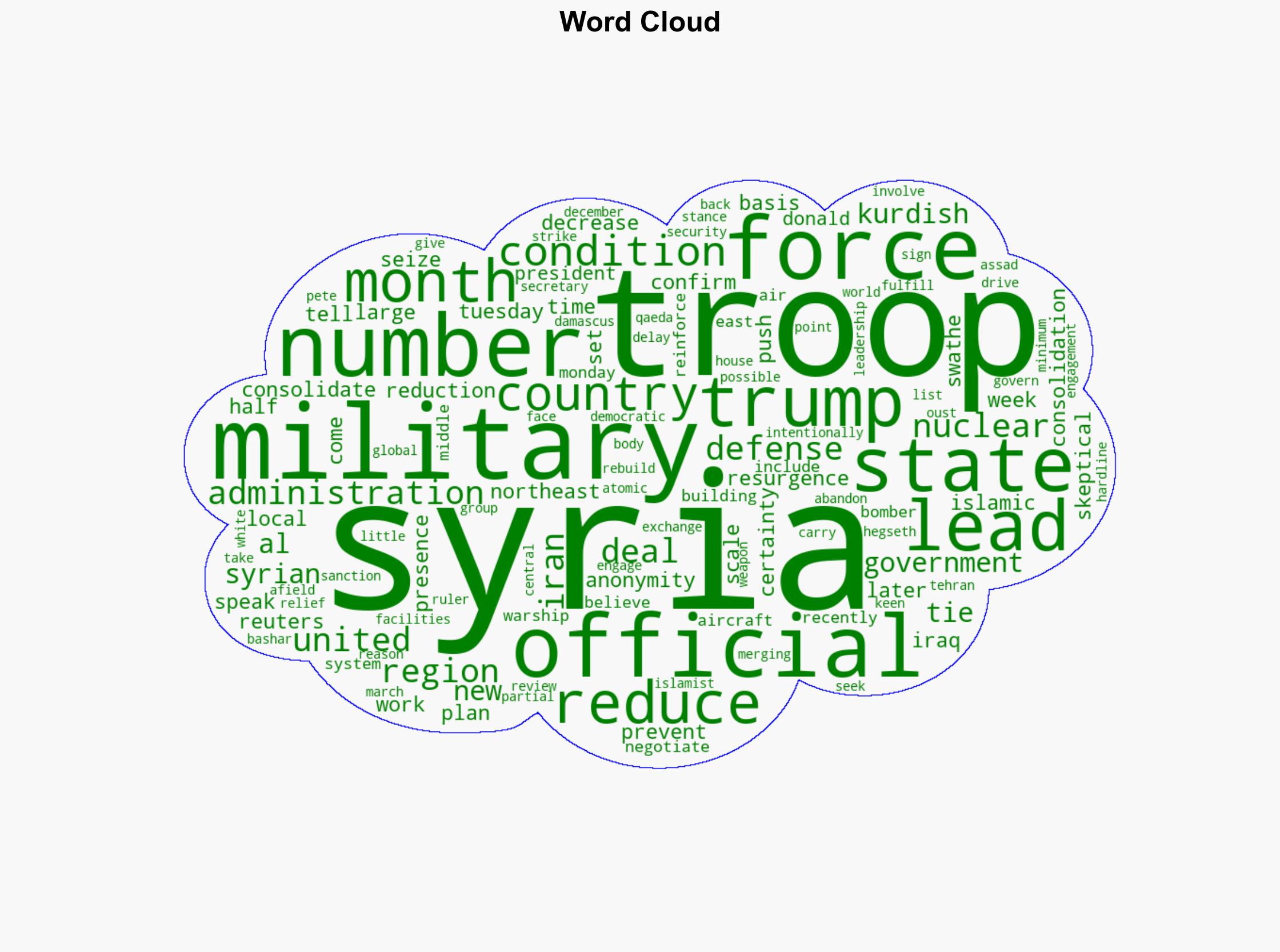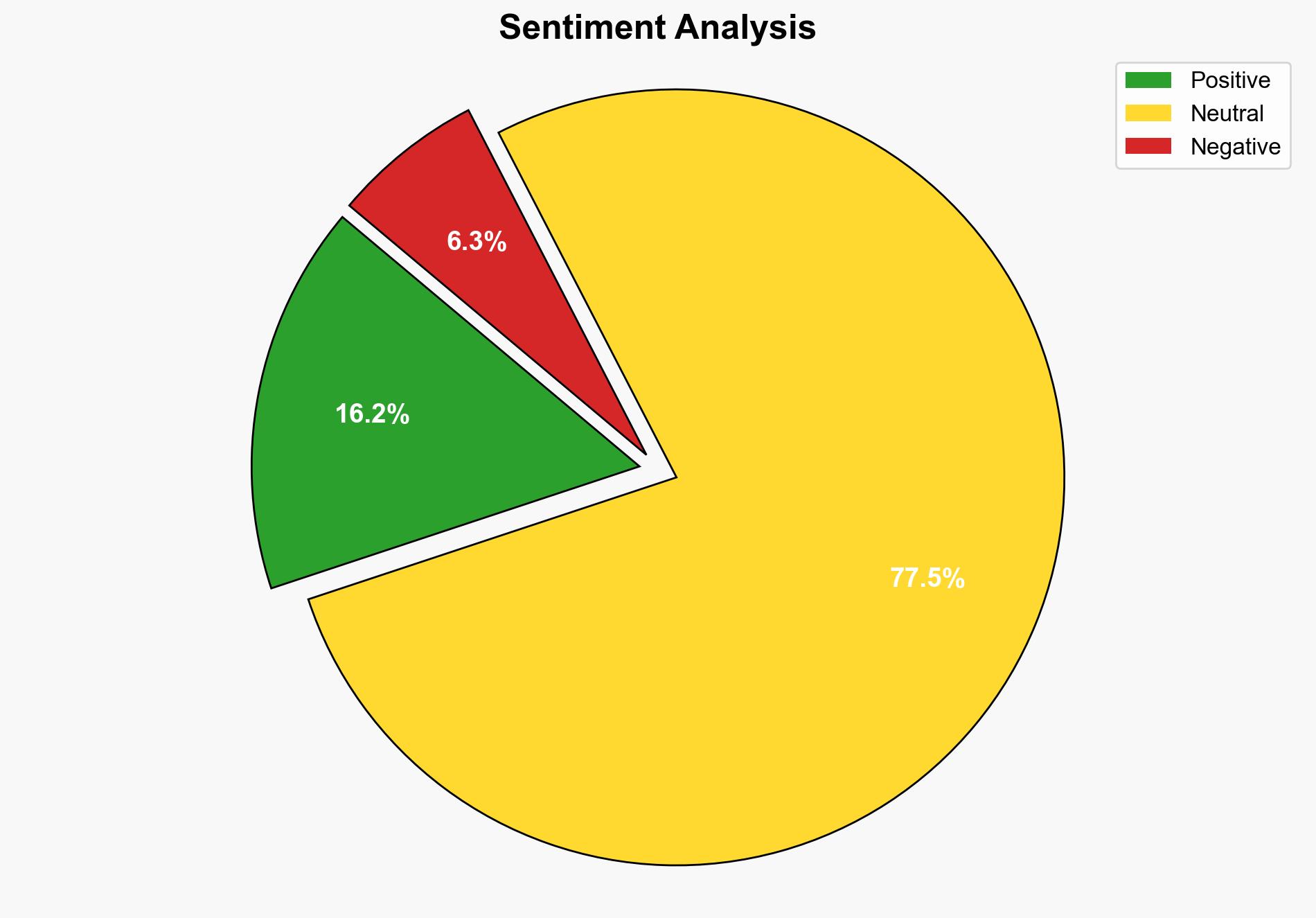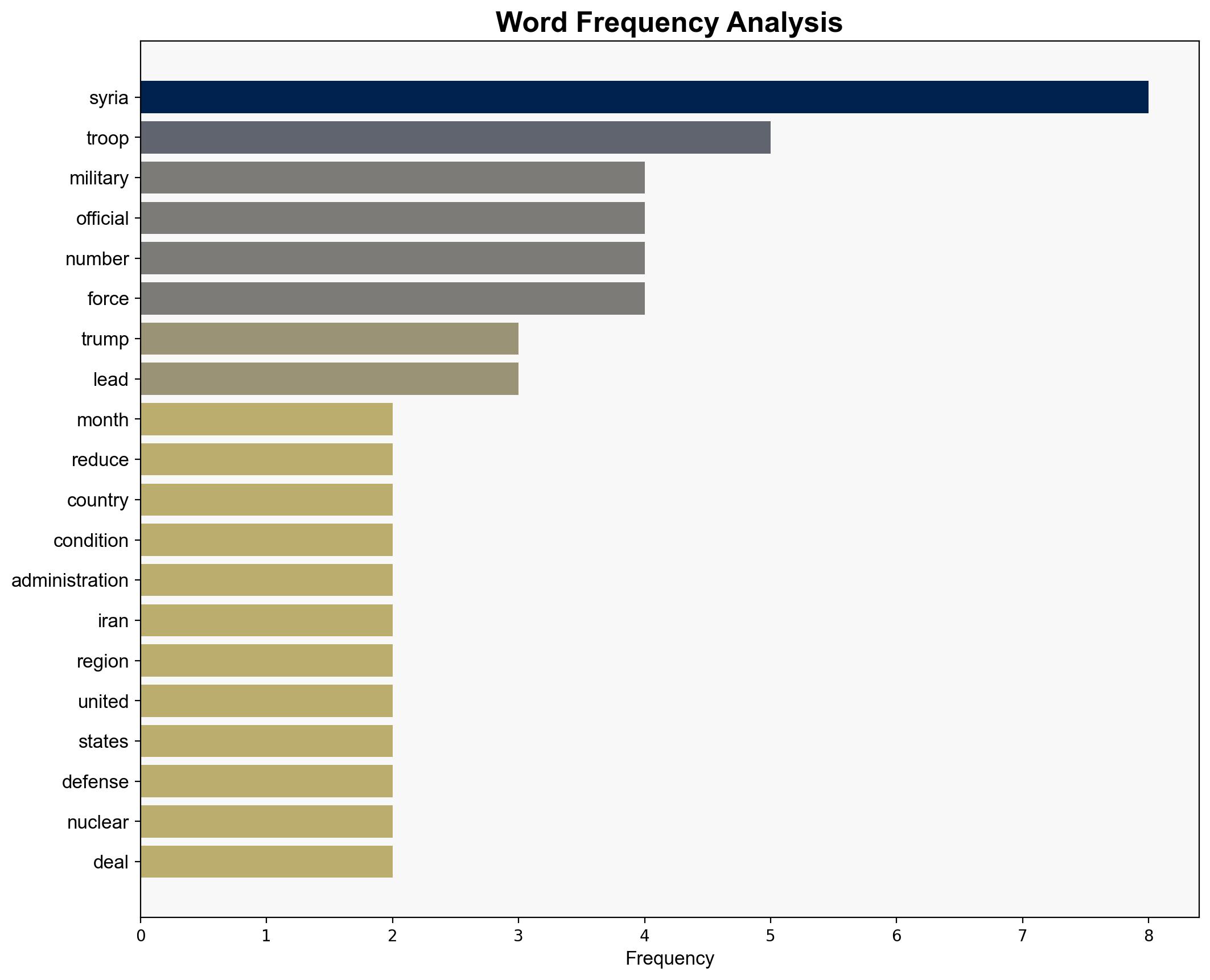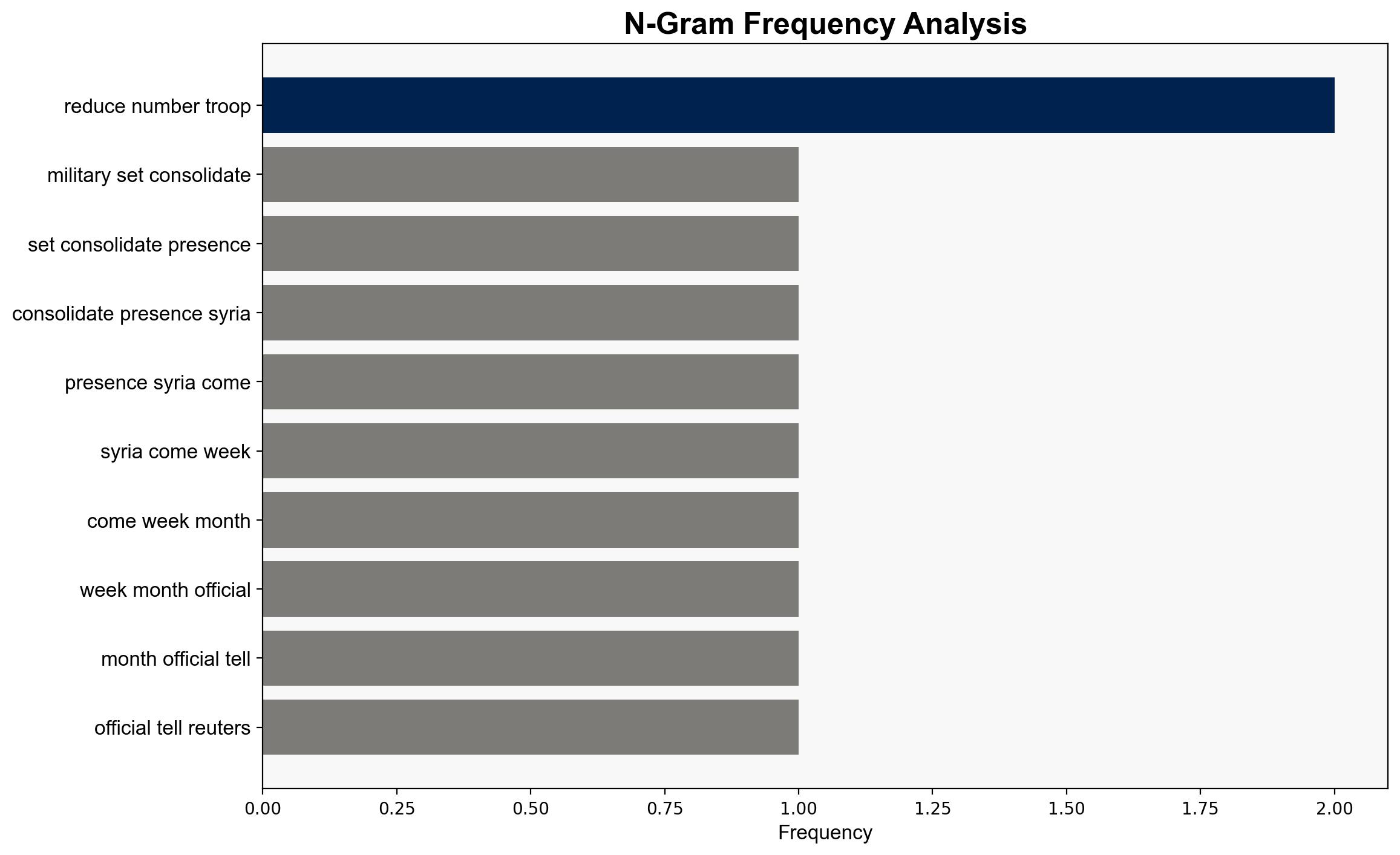US military poised to slash troops in Syria officials say – The Jerusalem Post
Published on: 2025-04-16
Intelligence Report: US Military Poised to Slash Troops in Syria
1. BLUF (Bottom Line Up Front)
The US military is considering reducing its troop presence in Syria by approximately 50%, potentially decreasing the number to around 1,000. This decision is part of a broader strategy to consolidate military resources while maintaining pressure on regional threats, such as the Islamic State. The move comes amid ongoing negotiations with Iran and a strategic review of global military deployments.
2. Detailed Analysis
The following structured analytic techniques have been applied:
SWOT Analysis
Strengths: The US maintains a strategic military presence in the Middle East, capable of rapid response to emerging threats.
Weaknesses: A reduction in troop numbers may limit operational capabilities and influence in the region.
Opportunities: Consolidation could allow for reallocation of resources to other strategic priorities.
Threats: Potential resurgence of extremist groups and increased influence of adversarial states like Iran.
Cross-Impact Matrix
The reduction of US troops in Syria could lead to increased instability in the region, potentially affecting neighboring countries such as Iraq and Turkey. This may also influence the dynamics of US-Iran negotiations and impact the security of US allies in the Middle East.
Scenario Generation
Scenario 1: Successful troop reduction with maintained stability through increased local partnerships.
Scenario 2: Troop reduction leads to a power vacuum, enabling a resurgence of extremist groups.
Scenario 3: Regional adversaries exploit the reduced US presence to expand their influence.
3. Implications and Strategic Risks
The troop reduction poses risks of destabilizing the fragile security environment in Syria, potentially undermining efforts to prevent the resurgence of extremist groups. It may also weaken US leverage in regional negotiations and embolden adversarial actors, impacting broader geopolitical stability.
4. Recommendations and Outlook
- Enhance intelligence-sharing and cooperation with local forces to mitigate the impact of reduced troop presence.
- Maintain a flexible rapid response capability to address emergent threats swiftly.
- Monitor regional developments closely to adjust strategies as needed, ensuring continued pressure on extremist groups.
- Consider diplomatic engagements to strengthen alliances and counterbalance adversarial influences.
5. Key Individuals and Entities
Donald Trump, Pete Hegseth




